I remember when I interviewed to work at my school. As my future boss explained to me about how much art is involved in the curriculum, I intimated that I couldn't even draw a properly identifiable stick figure. She told me "don't worry we can teach you".
I wasn't entirely sure that she was right. I still vividly remember deciding in ninth grade art class that some people had the inborn talent to draw and some people didn't. In my early 30s I modified my internal narrative; it might theoretically be possible to learn new skills but the amount of energy it would take would be enormous and not one that a man in his early 30s could afford to dedicate.
I think I was influenced by the so called "10,000 hour rule" made popular by Malcolm Gladwell (1). Gladwell writes, based on research done by performance expert Anders Ericcson, that the greatest performers at the highest levels of their craft all practiced at least 10,000 hours. Like many people I misunderstood what he was attempting to express. I thought that if you needed 10,000 hours to be world class that you needed to spend thousands of hours to just be decent.
I was assuming that skill growth is linear. If skill development were linear then almost nobody would ever start learning a skill because the initial thousand hour commitment would be too high for anyone over the age of ten. And anyone who made that commitment would inevitably become amazing because once you've committed to one thousand hours of training what is another couple of thousand at that point?
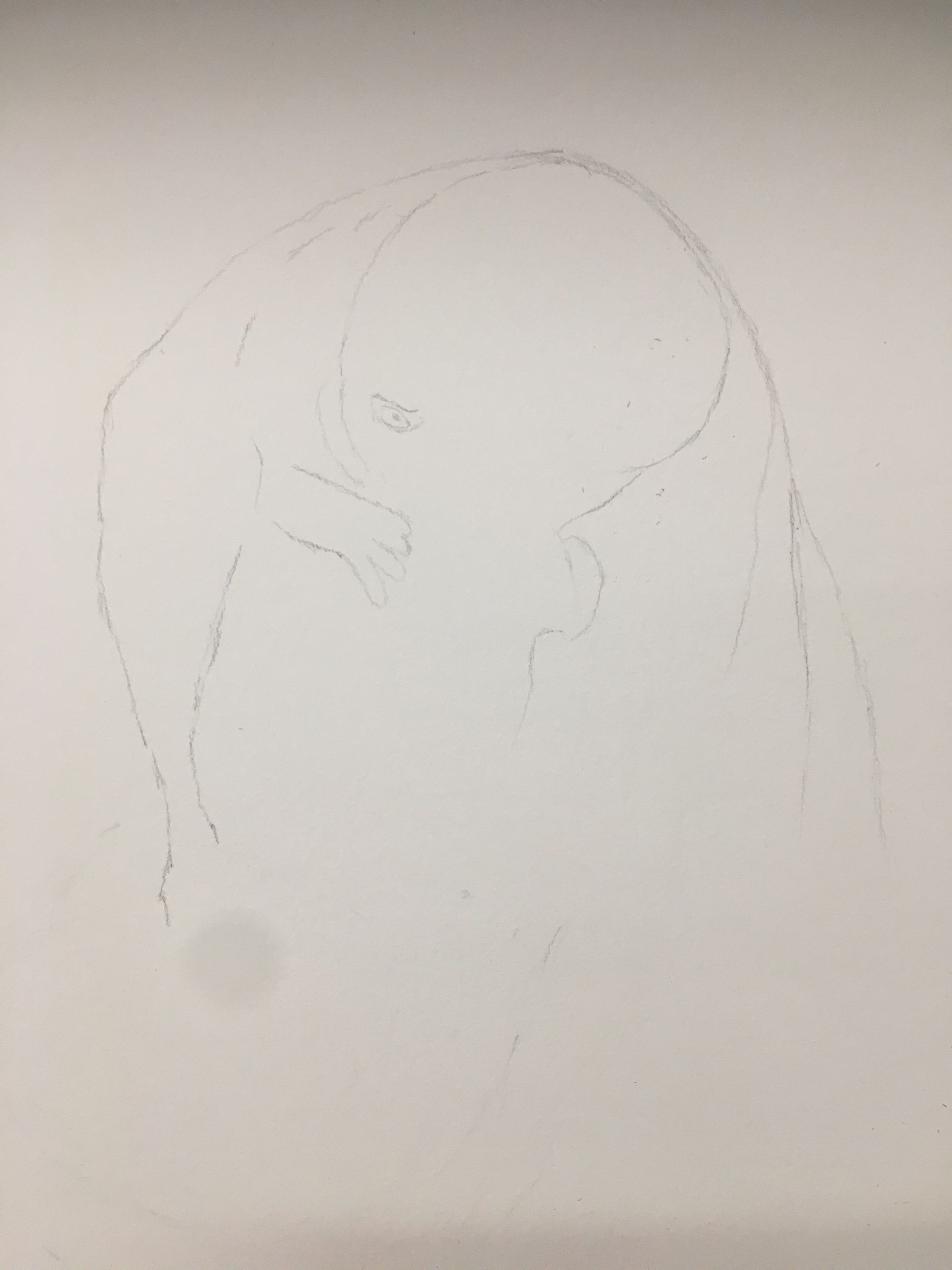
The second issue, and this is a simpler one to an extent, was the idea that if you can't do something at the highest possible level, then it isn't worth attempting to learn. This is simply ludicrous on its face. Yes there is great value is hyperspecialization when it comes to earning outsized rewards. But external recognition of excellence isn't the only reward for learning a skill. I don't need to play like McEnroe or the Williams sisters to enjoy playing a game of tennis. I don't need to cook like Bobby Flay to enjoy making a steak. The act of expressing oneself offers benefits that aren't monetarily rewarding but are still inherently satisfying in a way that nurtures what is best in us.
Drawing has taught me a couple of valuable skills and lessons. The first important lesson is the discrepancy that we have in our minds where we see the final product and imagine that it more or less came to being fully formed. We don't see the work that went into the development. We think of people as being incredibly talented because we can't envision the steps that it would take to produce something incredibly complex.
Embryology as a subject matter has a nice way of illustrating that very human concept. We don't see the development of the baby. I don't remember what I thought of human development prior to learning enough to teach this class but I imagine that I thought something like "in one week a lung is made, in one week an arm is made, and so on" until the human body fully forms and then it just grows. I was picturing, essentially, that the development of life involved intense focus on perfecting one part at a time until everything was complete.
This is how people think drawing operates. When I started drawing my initial instinct, like my students who are being exposed to drawing for the first time, was to hyper focus on a particular detail of a drawing I was trying to replicate and then moving on. If I were drawing the fetus above and I had no experience drawing my instinct would be to to and get that eye perfect and then move on to the face and then move on to the arm, etc. This would be a disaster.
When you get hyper focused on perfecting a detail you lose any sense of proportion. The trick is to lightly, ever so lightly, attempt to sketch the outline of what you are trying to capture. Getting the approximate proportions right seems to be the first thing. Once you've got a correct boundary to work in it becomes much easier to attempt to look at details. When you look at details you get obsessed with getting them perfect. When you attempt to get something perfect in isolation you ignore how it interacts with everything around it. If I had spent an hour trying to get the eye correct I would not have spent enough time looking at where the eye should be in relation to everything else on the page.
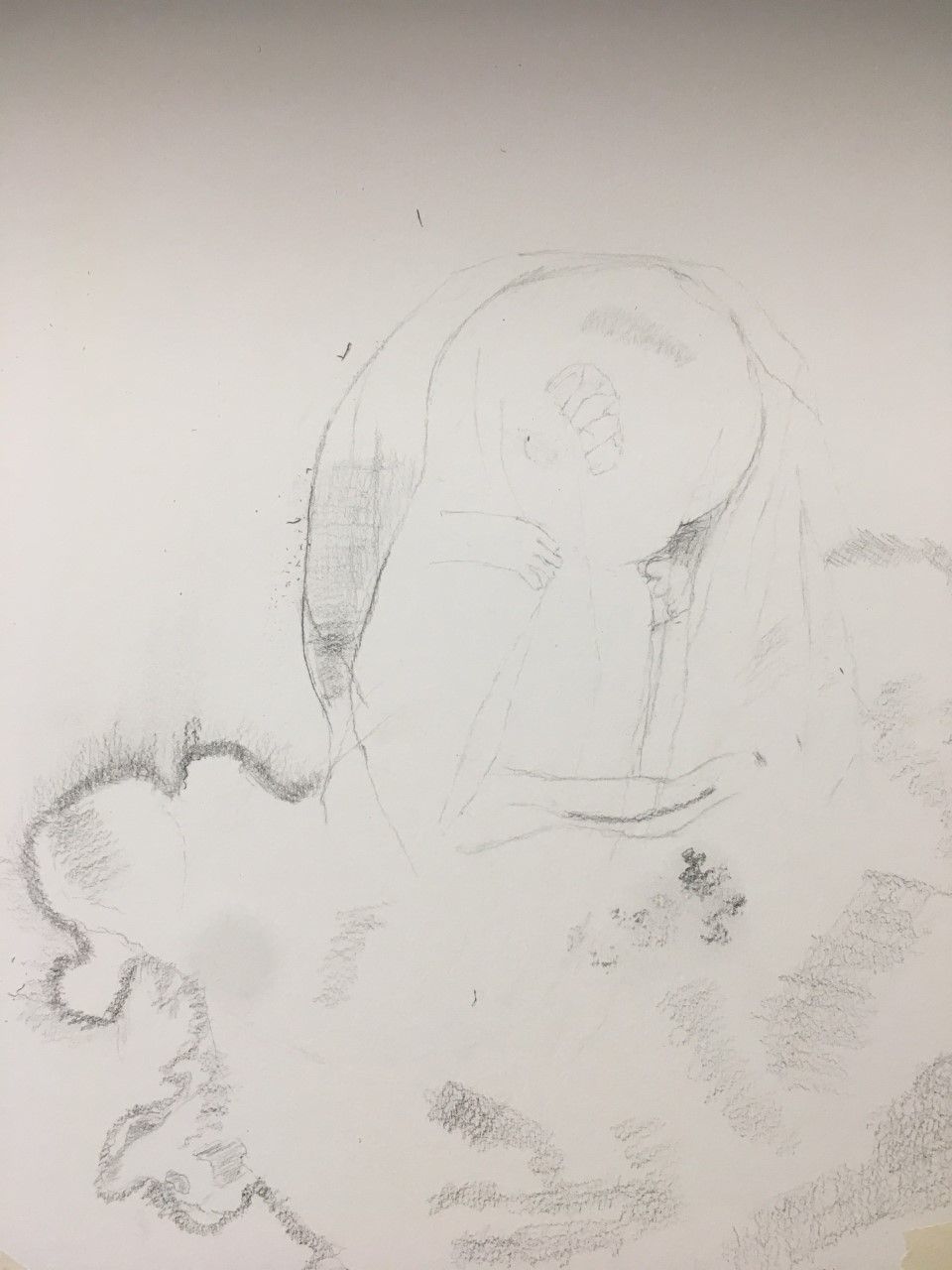
The single most important thing I am discovering in drawing is the importance of not being too precious with my lines. If I sketch lightly and constantly look at my work and adjust as necessary eventually I will get my work to approximate what I am trying to capture. This is probably the most important lesson for drawing, writing and designing of any kind. Iteration and don't commit to something so thoroughly that you can't erase it.
"Good writing is essentially rewriting" - I tried to find who wrote this quote, Roald Dahl has said it, so has Michael Crichton. But appropriately enough, it is a quote that has been written dozens of times and edited by various writers into the above quote. It is incredibly interesting to me as I write this draft of my essay that whatever the dozen people who read this see will look nothing like this first draft that I'm writing on December 11th. Good writing, art and design evolve over time. Just like life. In this very real sense art does imitate life. That's an idea that suggests that artists are engaging in the very evolutionary process that led to our development. Artists are iterating a far simpler version of the same process that took billions of years to create us in order to create something that has a spark of life of its own.
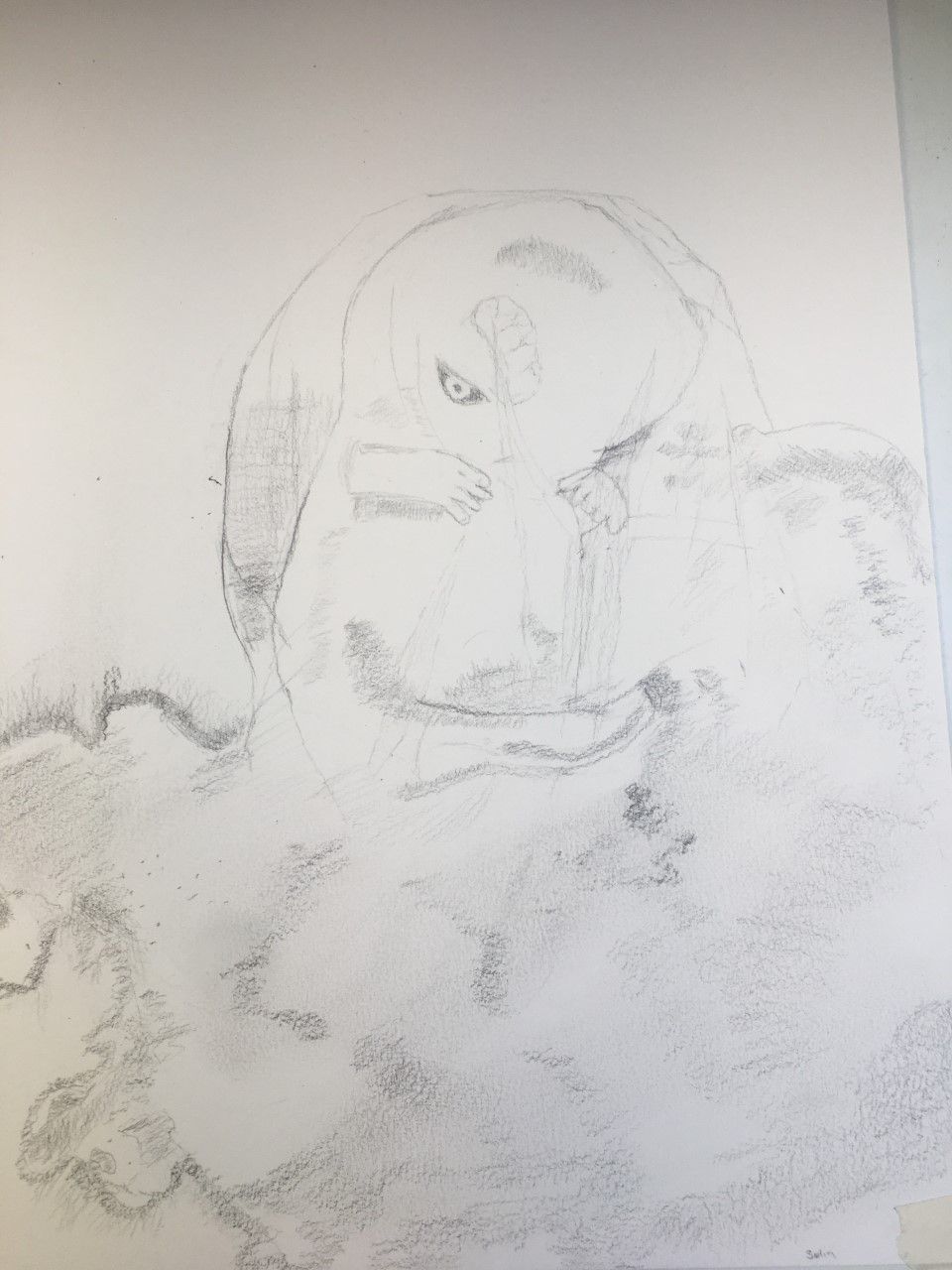
I have been working on this sketch for about three weeks. I've been able to get about three hours a week of sketching time into this piece. The final work should represent approximately 10-12 hours worth of work. I'm rather proud of it because I am seeing a process of change; forward progress and retreat. Two steps forward and one step back. Utter frustration with the work and then a brief eureka moment. I think one of the greatest pieces of magic of art creation is how we look at something and it looks flat and unreal but then we leave the art alone and, when we look with fresh eyes, can see something that is, at the very least, mildly pleasing.
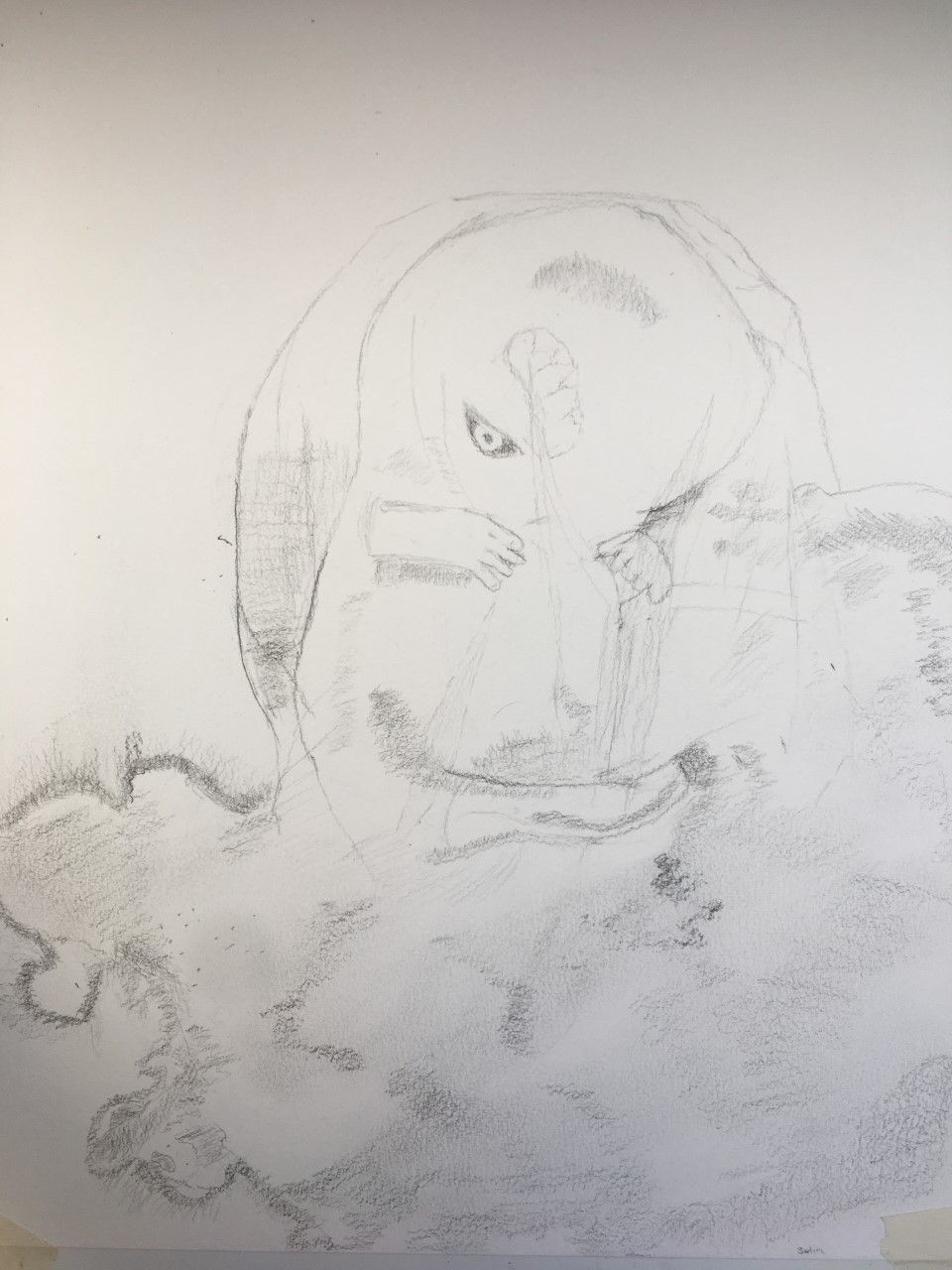
I've taken a picture each time I finished drawing. Most of the time the changes are incredibly tiny and unimportant. I don't get much done because I am spend a lot of time looking. I'm looking at where there is differences in light. This takes a tremendous amount of time.
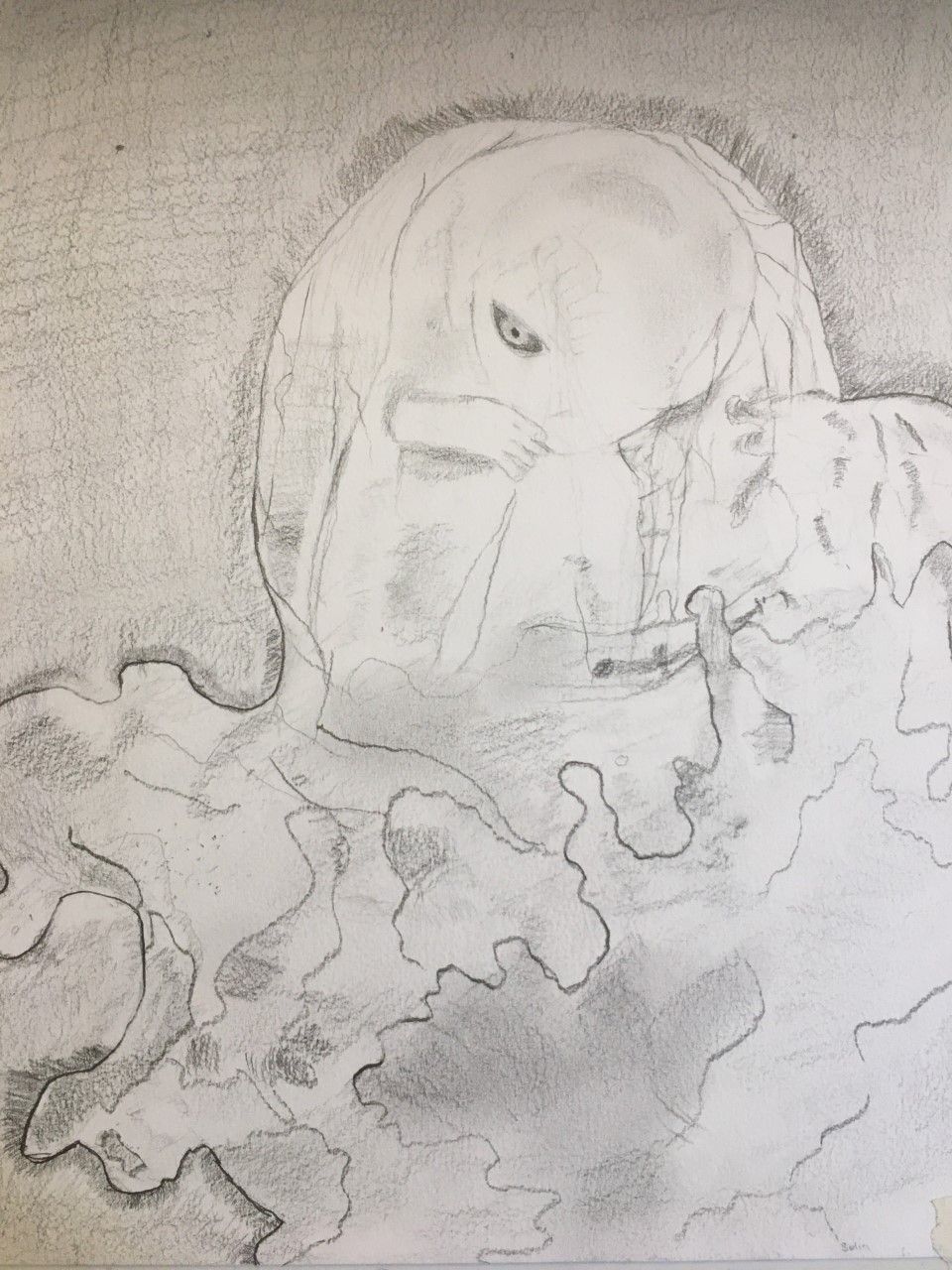
One of the things that I am amazed by is how much information we are capable of seeing instantaneously. Researchers suggest that humans make impressions about strangers after looking at their image for about 100 milliseconds (1). Given that most of our brain is involved in analyzing the world around us to help us determine if things are safe or not it isn't surprising that we can make judgements so quickly. The problem is that we tend to think that we have captured all of the important information in that time.
Maybe we have captured all of the "most relevant" information in that time but we definitely haven't captured all of the "important" or "useful" or "beautiful" information. Capturing all of those details takes a tremendous amount of time. Because we are geared towards capturing a lot of info quickly our brain seems to block us from seeing a lot of wonderful things until we have spent a lot of time looking at something. It never ceases to amaze me when I look at a picture for a long time and then something just seems to "appear" in the image. It was there the whole time but my brain just didn't let me see it.
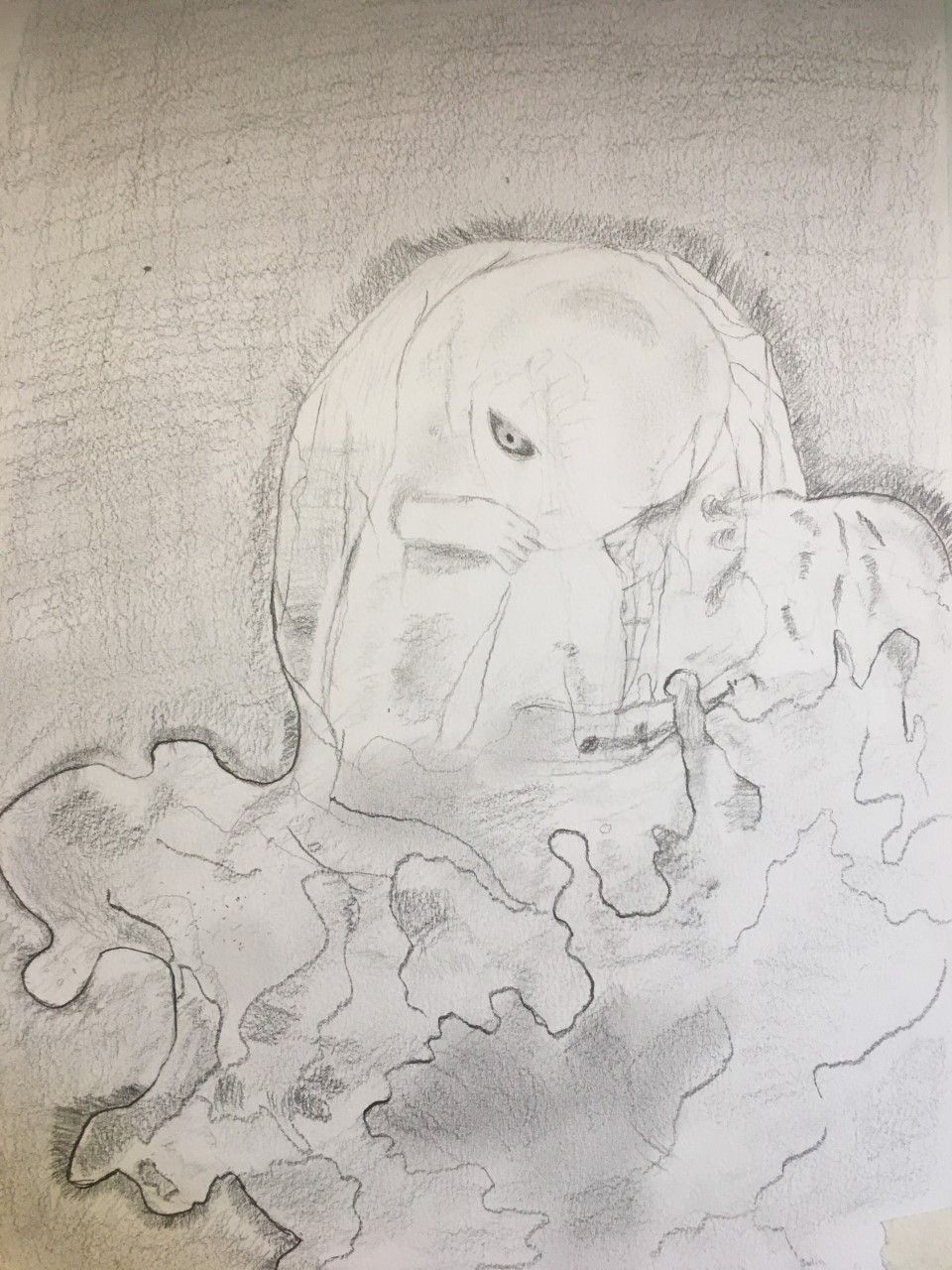
This is something that concerns me. With the plethora of attention seeking stimuli it is very difficult for people to commit to spending lots of time to look at something. For many people scrolling on Instagram, seeing dozens or hundreds of pictures in a matter of minutes is a very entertaining way to spend a few seconds. Each new image gives us a little dopamine hit, which we reward with a double click to "heart". That scrolling reinforces the idea that we can see enough in a proverbial drive by. I don't suggest that I was much better as a kid but I think the difference is that my entertainment options were more limited and it encouraged reward from repeated viewings. When you've watched a movie enough times to quote it all by heart you will inevitably notice details that you couldn't capture in the first couple of viewings.
On the last day of my sketching I began to add a tiny bit of color to the sketch. It was absolutely fascinating. I wasn't sure about adding color to the sketch but my colleague suggested adding the tiniest bit of purple and blue. I was flabbergasted as to why I would add those colors. But when I held the pencil in my hand I noticed those colors in the photo for the first time. I had been staring at this photo for more than 12 hours but I had not noticed the tiny dots of blue in the placenta. Nor had I noticed the shades of reddish purple in the embryo or in the edges of the placenta. It was amazing to me that holding the tools helped me find its purpose.
I can see how this might be a little bit dangerous; to a hammer everything is a nail. It can become form over function. But maybe a tool, when used very judiciously can enhance your ability to see and share what you see.
All in all as my first main lesson project I'm pretty pleased. The month was well spent. This was far and away the most time I've ever spent on drawing a single piece. The hours spent observing this image of life were well spent and I think I will do another couple of pieces of this in the months to come.
(1) Gladwell, Malcolm. "Outliers: The Story of Success" https://www.gladwellbooks.com/titles/malcolm-gladwell/outliers/9780316040341/
(2) Willis, J. Todorov, A "First Impressions: Making Up Your Mind After a 100-Ms Exposure to a Face https://pubmed.ncbi.nlm.nih.gov/16866745/
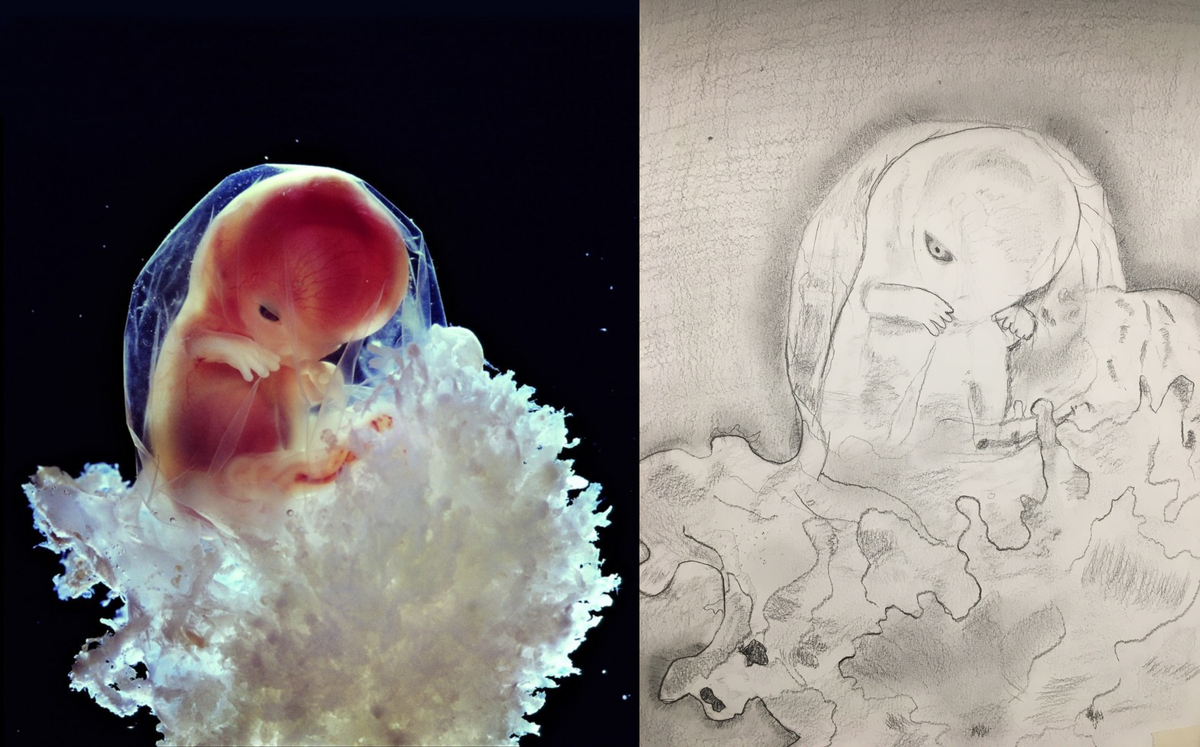

Member discussion: